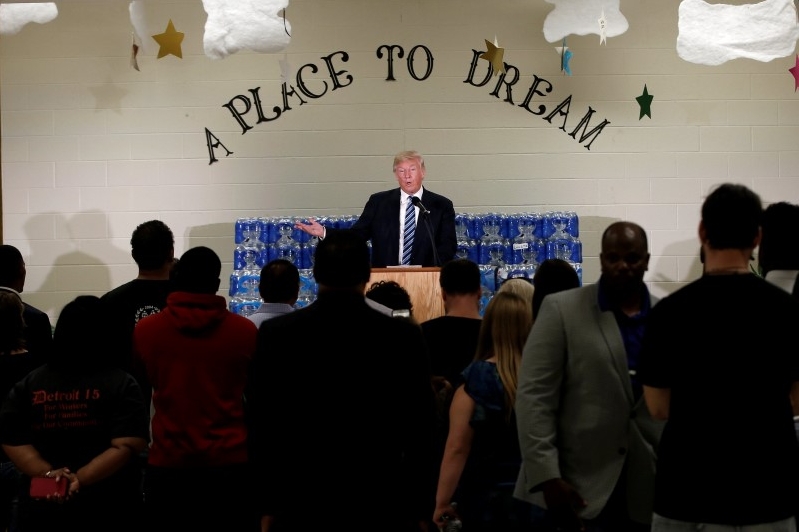
As the US Presidential race heats up, you can be sure that maverick billionaire Donald Trump will continue to spew statements which are guaranteed to make the headlines in many publications, or at the very least, occupy a fair amount of coverage in the first few pages. In was late September 2016 that Republican nominee Donald Trump raised more than a few eyebrows with his suspicions that technological giant Google, who also happens to operate the most popular search engine in the world, is sabotaging his efforts to be the most powerful man in the world by manipulating the search engine results. Trump claims that Google is "suppressing bad news" concerning his opponent, Hillary Clinton.
Such comments were made at a stop in Waukesha County in Wisconsin, and it is certainly controversial to say the least. Do take note that Trump is well known for his rather off-putting statements, including his wranglings against technology companies. In the past, he had unkind words to say about Apple as the Cupertino company did not want to write software to break into the Syed Farook’s iPhone, who was one of the San Bernardino shooters. Apple also turned down the chance to help out the Republican party (of whom Trump represents) with its July 2016 convention.
At the 28 September rally over at the Waukesha County Expo Center, Trump claimed that Google was hurting his campaign. He mentioned, “And a new post-debate poll that just came out, the Google poll, has us leading Hillary Clinton by two points nationwide. And that's despite the fact that Google search engine was suppressing the bad news about Hillary Clinton. How about that.”
According to Google’s executive chairman Eric Schmidt, Google has always been and will continue to remain neutral. Those who think that Google is biased supposedly have no idea on how their search engine algorithm works. Schmidt said, “Google's Autocomplete algorithm, which gives suggested search terms once you've started typing in a query, doesn't populate any negative terms when paired with a person's name, the company explained. That means "Hillary Clinton cri" doesn't autocomplete to "crime," and the same logic would apply to "Donald Trump cri."”
This is not the first time that Trump has thrown such an accusation against Google, having done so in June this year. During summer, a Google spokeswoman stepped forward to deny Trump’s claims, mentioning, “Google Autocomplete does not favor any candidate or cause. Claims to the contrary simply misunderstand how Autocomplete works. Our Autocomplete algorithm will not show a predicted query that is offensive or disparaging when displayed in conjunction with a person's name. More generally, our autocomplete predictions are produced based on a number of factors including the popularity of search terms.”
There are some Americans who lament the fact that the pool of candidates from which they can choose from are pretty poor lately. Hence, it is more or less a choice between the devil and the deep blue sea. I believe that everything has happened with God’s express permission, and we ought to do all that we can to pray for our leaders to lead the country with wisdom, integrity and justice.







